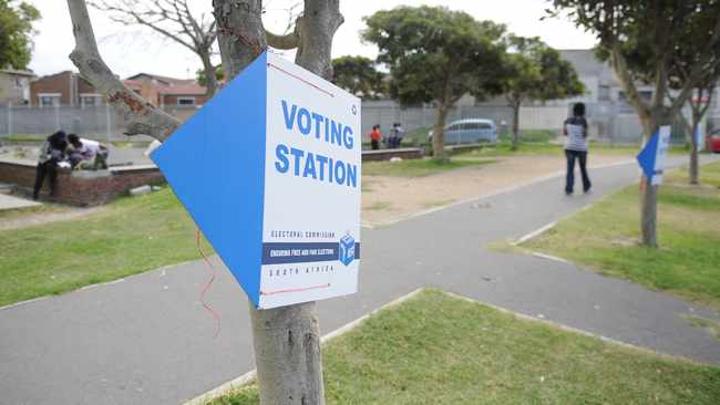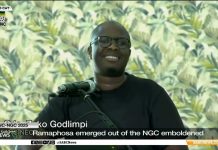Africa-Press – South-Africa. OPINION: November 1 will be a day on which the party whose messages promise the most will win. For the ANC it means getting voters out to vote, for parties such as the DA, CCC, GOOD and PA success could hinge on persuading “coloureds” to end their disengagement and to trust them with their ballots, writes Dennis Cruywagen.
Five years ago, in the Western Cape, the DA under Patricia de Lille, achieved an election result, which arguably will be hard to emulate by any other political leader in this province.
De Lille led the DA to a crushing victory in the Local Government Elections. Out of 24 local municipalities and one Metro, which is the City of Cape Town, the DA won 24, and the ANC won in Laingsburg.
A lot has changed since then. De Lille, who went on to become Mayor of Cape Town, has quit the DA under acrimonious circumstances and formed a new party, and the then DA national leader Mmusi Maimane has also quit.
Since then, the political landscape in the Western Cape has changed. The DA has lost control of nine municipalities to the ANC and its coalition partners. The ANC has also won some by-elections, while the DA has been hurt by internal ructions which include the De Lille fiasco and resignation of Western Cape leader Bonginkosi Madikizela.
De Lille has not gone into a political wilderness but has taken her cohort of political allies that once were marching with her and her former party, Independent Democrats, into her marriage with the DA into a new party, GOOD.
Because the Independent Democrats drew a lot of support, if not the most of its backing from the Western Cape’s biggest population group, the so-called coloured community, De Lille’s new party is likely to hurt the DA on November 1 – if her constituency has followed her.
And if it has, it will mean that the plethora of parties that will contest the Local Government Elections with their eye focused on this group’s backing at the ballot box, has turned the countdown to November 1 into a scramble for the “coloured” vote.
Of course, it cannot be said that this group, like any other group, will as a single, united column vote for a particular party. However, most votes from this group have not gone to the ANC, but to the DA, which under De Lille in 2016 maximized this support. Therefore, the fact that De Lille, or Aunty Patty as she is also called, will not wear a DA cap but a GOOD one, is something that the DA is likely to rue.
However, De Lille and her Good party are not the only unit fishing for votes in the “coloured” community. There is the ANC, which has not been able to make massive inroads and is often accused of following a policy of allowing “coloureds” not been seen as African and therefore not benefiting from Affirmative Action as much as those identified as Africans do.
A familiar sentiment heard in this group is under apartheid they were not white enough, now they’re not black enough. This sentiment is probably the main reason why the ANC, particularly in the Cape Metro and areas such as Mitchells Plain, has run into a brick wall.
It’s difficult to see how the ANC will be able to overturn these negative perceptions. An unambiguous policy statement that “coloureds” are indeed African and commitment to follow and enforce this policy may help.
As will putting forward a candidate from this group as its Mayoral candidate in Cape Town. Such a person must be credible, have integrity and not be mere window dressing, as Cape Town’s outgoing DA Mayor Dan Plato has been.
The DA after using Plato has jettisoned him and replaced him with a young white male. However, just like the ANC’s better life for all has not touched the lives of many, the DA has also been true and faithful to its core constituency, the wealthier part of the white community, which has enjoyed the cream of services, while the Cape Flats has been neglected, with appallingly housing delivery, poor infrastructure and crime are obvious areas of disregard and fuel for resentment.
DA national leader John Steenhuisen is on record as saying that his party needs to do much more in the City of Cape Town. He has said that DA will have to put a lot of money into infrastructure, laying out services in the next five years “so that everybody continues to receive basic services of a higher standard”.
Steenhuisen became DA leader after Maimane. Just as the General Election of May 2019 proved to be Maimane’s burial ground and led to his resignation and the end of the DA experiment with black leaders, November 1 could be damaging to Steenhuisen. The DA will not be able to repeat its 2016 victory margin. The heavens will literally fall if it loses Cape Town. So, one can expect the DA to increase its level of campaigning in the “coloured” community.
However, here it will run against the Patriotic Alliance, which has been very loud about ending the marginalization of the “coloured” community and has signed up activists who once were prominent in the ANC. The Patriotic Alliance has been very visible on the Cape West coast and could surprise.
The Freedom Front, ACDP and newly formed United Independent Movement are some of the other parties that will take part in Local Government Elections in this province.
But if there’s a party whose name makes no secret of what it stands for, it is the Cape Coloured Congress, which grew out of the Gatvol Capetonians movement. The CCC says on its website that it is a political party that since 1994 the “the Coloured Community as a whole have become even more marginalized than what they were under the apartheid regime. This is due to the coloured community, most specifically in the Western Cape, who have historically voted against the ANC’’.
It adds that “black people from the Eastern Cape moving to the Western Cape are given preferential treatment with regards to housing, jobs, public schools and health care over the coloured people”.
Of the DA, CCC says: “The DA competes against the ANC for black votes, which is why you never hear the DA taking sides with the Coloured People (who incidentally, put them in power) because the DA don’t want to be called racist by the black minority.
“The ANC does not care about the Coloured People. The DA does not care about the Coloured People. Therefore our Party seeks to open the eyes of the Coloured Community and make them aware of the injustices we have suffered under both Governments.”
November 1 will be a day on which the party whose messages promise the most will win. For the ANC it means getting voters out to vote, for parties such as the DA, CCC, GOOD and PA success could hinge on persuading “coloureds” to end their disengagement and to trust them with their ballots.
* Dennis Cruywagen is ANC Western Cape spokesperson. He writes in his personal capacity.
** The views expressed here are not necessarily those of IOL and Independent Media.
Insider






